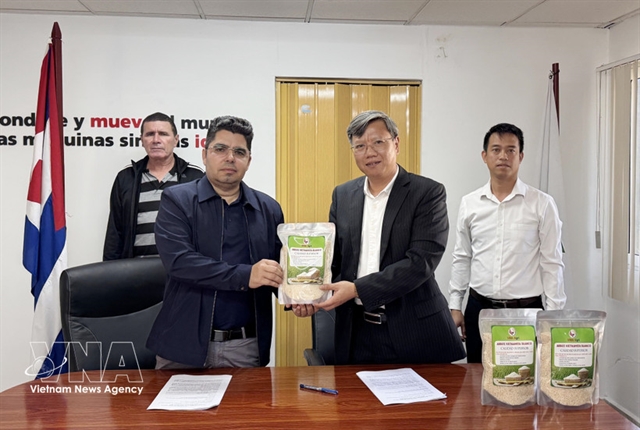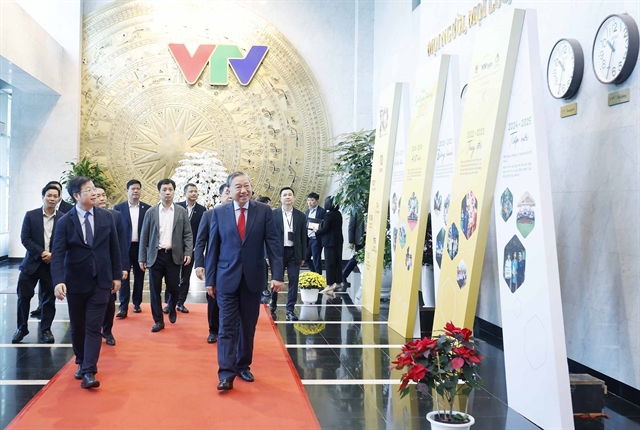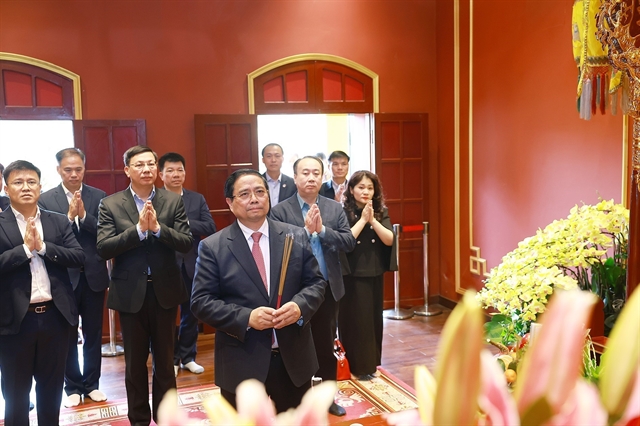.jfif) Opinion
Opinion


|
| ILO Director of Department of Partnerships and Field Support Rie Vejs-Kjeldgaard. — VNS Photo Khánh Vân |
ILO Director of the Department of Partnerships and Field Support, Rie Vejs-Kjeldgaard, talks to Việt Nam News about Việt Nam’s efforts in ratifying ILO conventions.
Việ Nam has ratified three more ILO conventions in 2019 alone, including the fundamental Convention 98 on collective bargaining. What is its implication for the ILO – Việt Nam relationship?
First, I would like to congratulate Việt Nam on the major achievement of having ratified three conventions this year.
One of the conventions – Convention 98 on collective bargaining – is a fundamental convention. Meanwhile, another convention is about employment opportunities for people with disabilities and the other concerns employment services to increase the efficiency of the labour market.
Ratifying these conventions are major achievements for Việt Nam, as they set the basis for the country to continue its economic and social development.
Việt Nam has ratified 24 conventions of the ILO over the years.
It is important to note that countries have already gone through a long journey before getting to the level of ratification of that convention. That long journey often takes years. And when ratified, it does not mean it is done. You’ve reached a milestone but it is the start of another journey of its implementation and realisation.
The journey towards ratification of the convention and the journey to implement it could not be achieved without the support of many actors in Việt Nam, including the Ministry of Labour, Invalids and Social Affairs, the Việt Nam General Confederation of Labour and the Việt Nam Chamber of Commerce and Industry, along with many other stakeholders in Việt Nam.
It also requires effective cooperation with the ILO in Việt Nam. And when the ILO is involved, it means that a lot of financial support and general support of development partners has been in place for Việt Nam on that journey. Going ahead, their support is very important, and the ILO in Việt Nam and the ILO in general is at their disposal for the continued journey.
As a middle-income country, does Việt Nam have difficulties in accessing international support in labour and employment issues?
The development partners often have primary interests in working with countries that have lower income status. However, it is recognised that even a middle income country can still have many challenges in both economic and social issues. That’s certainly the case not only for Việt Nam but in general for all countries.
As a middle income country today, Việt Nam still faces challenges and development partners do want to accompany the country in its continued progress, although they may want to focus their support in a different way. At the same time, they want to work with Việt Nam as they expect the country to grow and be able to do more and more on its own.
What should be the way forward for Việt Nam to continue taking advantage of support from the international community in labour and employment issues?
I think Việt Nam has always had many development partners that want to accompany the country in its continued journey. ILO and its development partners are always there to support Việt Nam.
To make development partners interested in working with Việt Nam, the country needs to define clearly what it wants to do, how it will move forward, and indicate what it needs for support from development partners, including ILO. Việt Nam has always been good at that and will need to continue that way.
It also means defining what are economic, employment and social sustainable development goals as well as environmental challenges that Việt Nam is facing.
You were Director of ILO Việt Nam in 2007-11. Have you noticed changes in Việt Nam upon your return to the country this time?
I had the privilege of living in Việt Nam for almost five years in 2007-11, that period coincided with the journey that took Việt Nam from a lower income country to passing the threshold of a middle income country. It was an impressive achievement.
It was the period of time when Việt Nam had a lot of initiatives in labour, employment and social fields: developing employment strategies and skills development strategies, or improving data for social and labour areas, to name a few. The country also ratified several ILO conventions at that time. All of these created the basis for where Việt Nam has moved today.
Việt Nam is now a lower middle income country and in a few years, Việt Nam will continue to move to an upper middle income country. It means the labour market and employment situation have changed dramatically. The population and the labour force have increased in size. Some of the issues that we worked on are less a challenge today but new challenges have emerged such as labour shortage. And not far from now, the aging population will be also an issue for Việt Nam.
No matter how a country progresses, new issues will come. But Việt Nam has constantly seized new opportunities and managed to use its potentials and the progress has been enormous. — VNS




